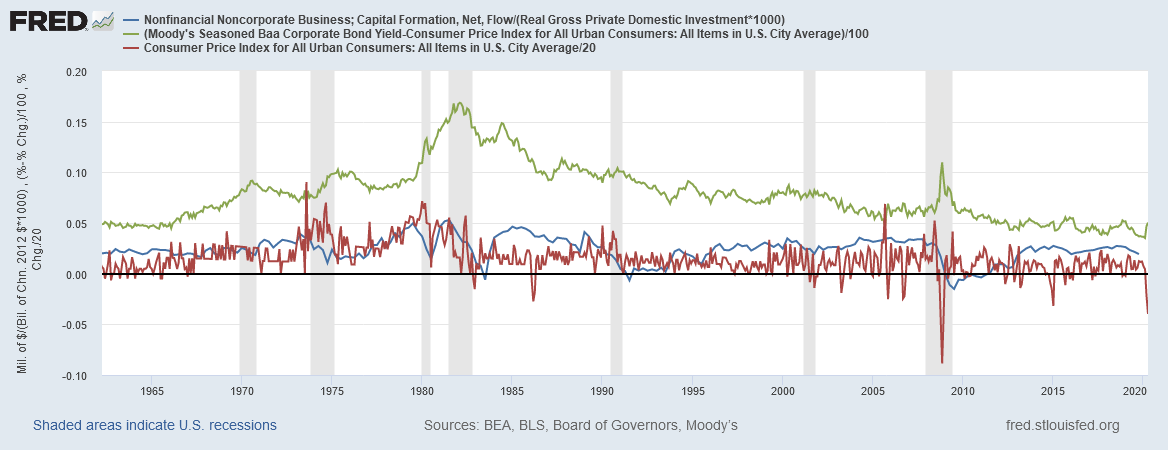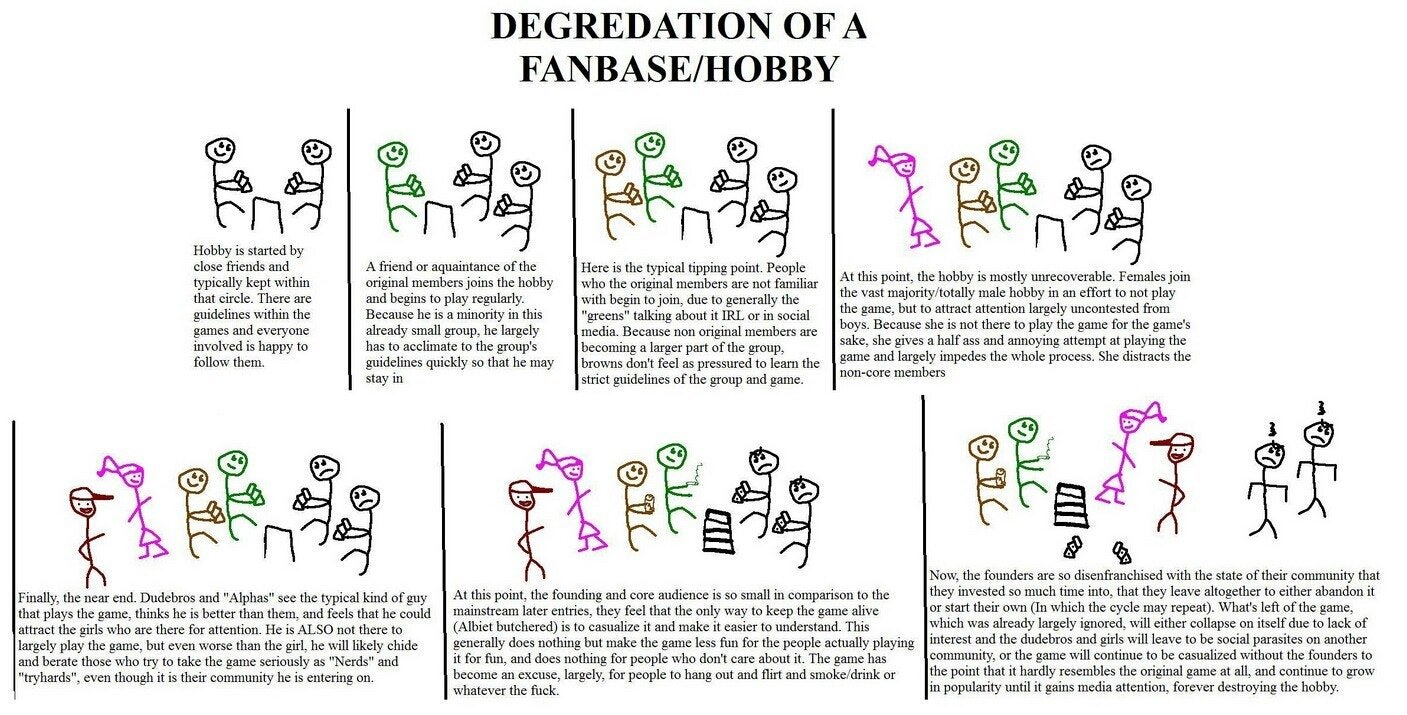Dearest frens,
henlo pals i am a frenly guy here to exposit a thing okay thanks
You ever think about like… clothes? Man, why do we even wear clothes? To cover our nudity? Man, that’s fucking stupid. This is a total grift, and, bro, bro, this is such a fucking racket! Let’s get in on it! That’s always my first instinct when I find a racket, as the good value transference parasite I am (Still the best, two millennia and counting, arguably three!)
So let’s talk about this racket. Why do people buy clothes? To cover themselves, obviously. But also, to express tribal identity, hence all the amusing novelty graphic tees. And what is the biggest racket in the market? You know what I’m going to say if you’re a regular reader of the blog, and I know there are literally dozen of you. Luxury. The attempt to signal wealth through clothing. So let’s talk about that.
Most people’s first instinct would be to aim upscale or ultra-upscale. At the highest heights, maybe you sell something for $100,000 – once. Once a year. That’s not much fodder for your business, and there is a shit load of variance. I saw a art piece that struck my fancy, but the low five figure price tag didn’t fit the budget. It’s still for sale, years later. Unless you’re one of the few that arbitrarily strikes a mood (and if you do, milk that hard), your prices can only rise so high, and your volume will be anemic. So maybe less upscale, less tailored, something more for the broad upper class. Let’s widen our market to centimillionaires and their cadet branches. There were 50,000 centimillionaires a few years back, probably quite a few more now, and there are associated families with those. We can reasonably eyeball our global upper class market as a few hundred thousand households. Now you’ve got a much larger customer base! Still, they can’t dig as deep into their pockets, right? But you can still charge them a couple hundred bucks. So you open up your store, call it Taul Spuart, and you sell 10,000 sport jackets for $300 each and make a snappy $3,000,000 and then sell 10,000 more shirts for $100 each and call it a day. Hey, that’s weird. By sliding down the class totem pole, we made more money.
Is there a pattern here? Let’s move down again. Let’s start selling to the upper middle class. Now our market is a whopping 5% of the population. Sure, maybe we have to cut the price per shirt to like, $40, but we are literally selling millions of shirts now. Profit goes up again. Incredible. But if we keep chopping prices, we’ll have no profit margin, right?
Well, that’s the magic of it. In 1980, a book came out called The Official Preppy Handbook. The retailer pimped, LL Bean, was a fairly standard retailer catering to upper middle class clientele. What happened to it? Now middle class shoppers were clamoring to buy their products. Obviously, prices had to drop to accommodate poorer customers, right? Wrong. Prices doubled, tripled, sometimes even quadrupled. A LL Bean shirt in 1980 was only twice the cost of a Sears shirt. Since then, the cost of a LL Bean shirt has far outpaced inflation. Profits went up an order of magnitude. Girbaud, an upscale jeans brand, was appropriated by blacks. Since that point, the price has doubled in inflation-adjusted terms. The pants were more expensive than commodity pants, but part of that is just the cost of materials and the cost of having a smaller market. The truth is that the upper middle class exists in an awkward valley where they are extremely stingy relative to other classes as a proportion of their income, and thus demand lower prices to buy anything. Hence, core UMC stores like Costco run on discount stores. The thrift store, when it was classy and not for bandwagon grifters, was a cheap way to pick up novelty clothing that smelled like urine, the urine smell adding a level of class by shocking prudish middle class assholes. When I shop at Amazon, I get special discounts on top of Prime thanks to Amazon’s Special Rates For Rich Assholes program. Credit card companies and banks induce their mass affluent/millionaire customers to spend more by enticing them with generous point and reward programs, while hitting the proles and middle class with intrusive credit score requirements and fees.
If you can market your product to the middle class, you take that opportunity. Now you’re selling $100 shirts again, but even more than before. And at the end of the day, it’s all the same plastic crap anyways. You’ve got plastic crap for the upper class, for the upper middle, for the middle, for the proles. The main difference is that the plastic of the very rich is made by slaves in Italy, not China. Still plastic crap. But what people buy is not the actual product, but the image of the product. Marketing, marketing, marketing. Middloids on Le Reddit insist Walmart shirts disintegrate into plastic goo within a year, when I’ve got hand-me-downs going strong for years now. For all intents and purposes, that’s perfect durability.
But wait, why would the middle class pay so much for ordinary plastic clothing? Because they believe it conveys an image of being classier than they are. After all, they can afford “designer” now. But that puts you into a bind. In order to keep selling, you have to maintain the image of being upper class or at least upper middle class while simultaneously being far more accessible and downmarketed. That’s the dance of mass fashion. Ignore morons who talk about Burberry burning coats to keep them out of the hands of hobos. The amount of coats Burberry can burn can’t possibly put a dent in global supplies – shock, they destroyed millions in merchandise! What a terrible destruction of stock for a company that pulls in billions! It’s a fraction of a WHOLE PERCENT! You lose an order of magnitude more stock to shrinkage. What it can do, however, is reinforce a narrative of exclusivity and prestige. The intended audience, who falls for it hook, line, and sinker, is the middle class, which eagerly shlicks itself to the idea of buying merchandise that can’t possibly fall into the hands of those deplorable proles, while also being able to masturbate to the feeling of virtue signalling about designer clothing for hobos. The prestige dance can be helped along by actually having genuine upper middle class products or upper class products while producing a gaudier, more expensive version for the middle class. Bigger logo, anyone? To illustrate with another kind of example, a $125 tasting menu at some celebrity chef’s shitty 1 star Michelin restaurant is a genuine upper middle class experience, the counterfeit of spending $1000 for a gold-plated steak and a selfie with a celebrity of non-chef persuasion is middle class at best. But the latter is more expensive than the former.
Marketing is fake and bullshit, so what? You’re probably rolling your eyes at these observations you already made in grade school. Well, the act of marketing itself makes an image. And that image is not a true reflection of reality, but an exaggerated distortion. Just as Instagram creates unrealistic images of female appearance, marketing creates unrealistic images of tribal identities. Take my good friend, the Iraqistani Hebroid. When inebriated, one of his favorite rant topics is about the beautiful blond goys and their exclusive fucking country clubs and their Dartmouths and their boating. This is a very insane topic of conversation. The reason why it is insane is because half the people in his rich Jewland are blond, his family has been life members in a club since the 19th century, his relatives went to said white bro Dartmouth, and he is such a boater, he only knows how to boat and can’t drive. I fucking drive him. The conscious mind recognizes that this is unreasonable. But the unconscious mind does not. What the unconscious mind sees is a lifetime growing up on LL Bean and J Crew ads showing impossibly beautiful people on boats. The unconscious mind understands that the self is not an impossibly beautiful person on a boat, and thus nurses a resentment against an image that does not exist. In fact, the image is meant to depict a tribe which he is certifiably a member of, the Judeo-Puritan ruling elite, so that the masses might admire their Calvinism. But the image is so distorted that the Funhouse mirror reflection becomes a figure of superiority to taunt him. Rich people will do a lot to self-confirm their own membership in the tribe. In the past, striver New Money Americans would invent new genealogies tying them back to European noble titles, which is why genealogical documents and Ancestry websites today are totally trustworthy and true. In the more recent past of a few years ago, autism was a physical proof of bluebloodness, so grown ass men would pay to get fake diagnoses of autism to confirm their own superiority of blood. For my part, back in university, I would Banepost with my college roommate, another aristocrat, in real meatspace. The waiters were in awe of our Calvinism, or at least they were paid enough to pretend to be.
But what if the neuroticism of the rich doesn’t bother you? It should. Here’s the moneyshot. What is the figure that all people are compared to and found wanting? Fussell famously said that every American wants to live like the upper middle class, but I’d like to add my own addendum – but they’d like to look like the white middle class while doing so. It is a fact that middle class white people are the most beautiful people, which is why they are used as the pretty person when not diversity pandering. But the fact that white middle class people are used to model all these distorted identities means that all sorts of insane tribes are ascribed onto them subconsciously. They become the targets of every status resentment, and marketing works by creating status anxiety and status resentment. In short, unrestricted capitalism, even without the woke component, creates marketing, and marketing is all implicitly anti-white by aligning the resentments of all non-white middle class people (and, for that matter, white middle class people who resent the fake marketing images of wealth) against an imagined figure that looks like… the white middle class.
Ogilvy said that the best advertisement is infotainment. How foolishly the wisdom of elders has been ignored.
A second effect is that over time, these constructed images and reality yaw farther and farther apart. The image of rich people that most people have is some kind of indifferent white Republican with boomercon views. That’s been outdated since the 1920s. They think rich people are conservative, when conservatism is indisputably low rent. I express my conservative leanings among my peers by identifying as a fucking Marxist-Leninist. That’s how you signal family values and support for Trump without getting cancelled. My image of factories is a conglomeration of media images of British satanic mills, and I worked as an engineer in a fucking modern factory. Just like with LL Bean, the image overrides the truth. People simp for tradwheats in sundresses when those thots have a high body count than Hiroshima. What kind of a woman dresses up as a tradwheat? A woman who wants to drown in male attention – a whore, in short.
The key problem is that most of us aren’t wired to handle signals and tribal outfits changing so fast. They change so fast because free societies permit cheap signals to be appropriated quickly, but any large tribe necessarily must have relatively cheap signals. Tradwheat quickly becomes a thot sign, because the form and the function are not inherently aligned. We’re looking for the old stereotypes, but the stereotypes are constantly changing in real life, helped along by marketing departments manipulating them to drive up profits. Autism is high status before, but is it high status now that low rent moms use it to excuse the behavior of their shitty children? That’s just a few years of change. Nothing sticks long enough to form coherent cultural narratives. We exist in a constant state of agitation and status anxiety, and Uncle Capital has the answer for only 20 payments of $29.99.
The most status insecure of all, the downwardly mobile middle class white, thus becomes the archetypal consoomer, filling the identity void with infinite amounts of expensive plastic crap. His race is devalued, his class is in trouble – what’s a man to do but watch MARVEL CAPESHIT KABOOM?
So what did ye olden people do? It’s like there was a problem like this in China, where names and realities went out of sync. It required a sort of rectification of names. A formal designation of things, so to speak. A formalism. That’ll work. Let’s call these sumptuary laws, dictating exactly what people of a specific caste can look like. Perfect!
One problem is that people will do what they can to circumvent those laws so they can signal higher status than they have. The second problem – how do you decide who is a noble, who is a burgher, etc? In Ancien France, they self-identified during the census. Yes, sir, I am most def a noble, pinky swear. But we can do better, right? What if we created some kind of institution of autists that screened other autists for the proper autism, and if they could successfully defend a statement of autism, then a panel of King Autists would give them the vaunted designation of PotatoHead Douchebag, and Emperor von Hipsburg could send them a letter of baronhood in the mail. Surely they would never devalue the prestige of their own name by issuing far too many degrees for short-term monetary gains, since they are institutions with centuries of history and a long and unalienable connection with noble culture. Old problems demand new solutions.
In the end, everything rots. Everything becomes…
Zing.
So spiritually barren he writes whole articles to set up a shitty pop culture reference,
Monsieur le Baron
dope songs there tho



